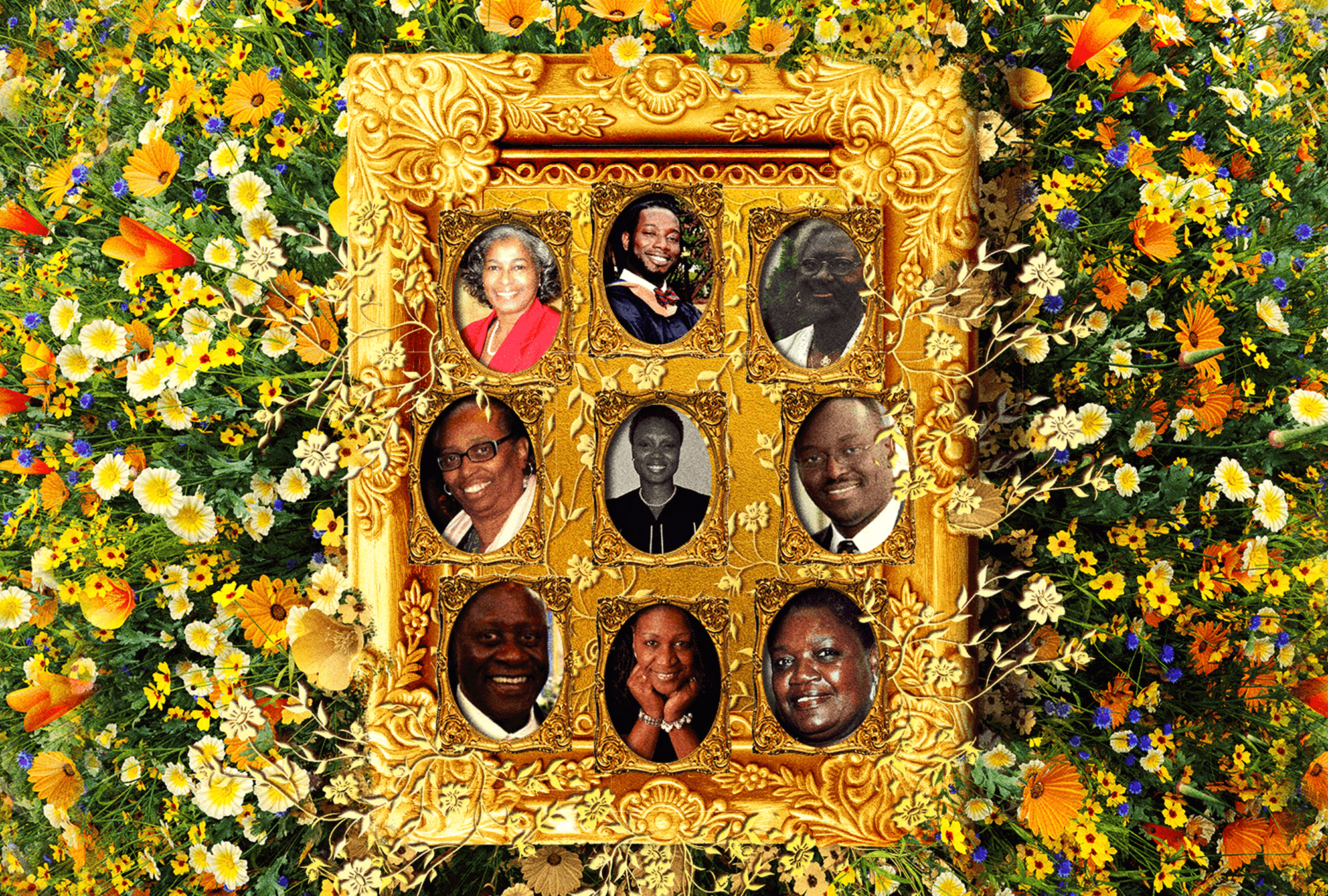Share As A Gift
Share a paywall-free link to this article.
This feature is only available for subscribers.
Start your subscription for as low as $4.95. Already a subscriber?

The Emanuel Nine (from top, left to right): Myra Singleton Quarles Thompson, Tywanza Kibwe Sanders, Susie J. Jackson, Cynthia Graham Hurd, Sharonda Coleman-Singleton, Clementa C. Pinckney, Daniel Lee Simmons Sr., DePayne Middleton-Doctor, Ethel Lee Lance. Illustration by Nico Ortega.
I WAS INVITED to preach for the sixth commemoration of the martyrdom of the Mother Emanuel Nine on June 17, 2021. The service was held at St. Joseph AME Church in Durham, N.C., jointly sponsored by St. Paul’s Lutheran Church of the same city.
After accepting the invitation, I began to do some research regarding the events of that tragic evening of June 17, 2015. After the group had gathered in the basement fellowship hall of Mother Emanuel AME Church in Charleston, S.C., a young white man came in, and the class welcomed him and offered him a seat at one of the tables. Someone provided a Bible so that he could follow the study session. The Bible study leader for the evening was Myra Thompson. They were studying Mark 4, the parable of the sower.
[Jesus] began to teach them many things in parables, and in his teaching he said to them: “Listen! A sower went out to sow. And as he sowed, some seed fell on the path, and the birds came and ate it up. Other seed fell on rocky ground, where it did not have much soil, and it sprang up quickly, since it had no depth of soil. And when the sun rose, it was scorched; and since it had no root, it withered away. Other seed fell among thorns, and the thorns grew up and choked it, and it yielded no grain. Other seed fell into good soil and brought forth grain, growing up and increasing and yielding thirty and sixty and a hundredfold.” And he said, “Let anyone with ears to hear listen!”—Mark 4:2-9
The visitor that night listened attentively during the hour-long lesson. At the end of the session, everyone stood for closing prayer. The visitor took out his gun and began shooting. He told one of the participants that he was not going to shoot her so that she would be left to report what had happened. After the shooting rampage, he turned the gun on himself but discovered that all his ammunition had been expended. He then ran out of the basement fellowship hall, got into his car, and sped away.
I studied the parable and prepared a sermon, which I titled, “What Kind of Soil Are You Determined to Be?” I was warmly complimented for my presentation and hoped that I had gotten to the heart of its message. It was such a powerful word that I wondered why it had not deterred the visitor from the murderous action he had taken that night in 2015.
He had hoped that his heinous action would foment another civil war. This would be his response to the white supremacist claim that Black people were taking over the country. In his mind, this would be just revenge for his claim that Black men were constantly raping white women. How could he not be convinced of the evil of his intent and change his mind as he experienced the kind of hospitality of the members of the Bible class and the gracious spirit of the pastor of the church and the parable of our Lord?
Then I recalled a verse from Isaiah 55:11: “... so shall my word be that goes out from my mouth; it shall not return to me empty, but it shall accomplish that which I purpose, and succeed in the thing for which I sent it.” Clearly the visitor did not have ears to hear what the Spirit was trying to say to him.
The parable had not succeeded in all it had purposed, but might there be broader intentions? Or extensions? Could the parable still be at work?

Got something to say about what you're reading? We value your feedback!